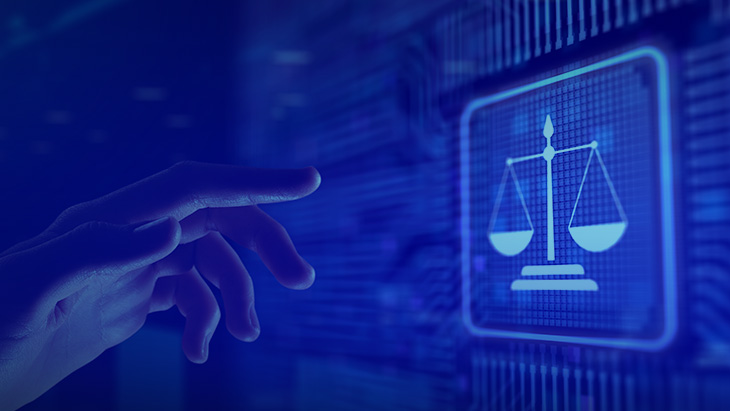
Improve Your Network Infrastructure in 9 Steps
Determining the living standards of the second decade of the 21st century, when digital transformation advanced at an incredible pace, has largely become related to using technological developments. Such developments not only enhance the living standards of individuals and societies each day but also transform their lifestyle. On the other hand, the complex network structures underlying the advanced technologies that have such a deep impact on human life, directly affect the quality of life.
Monitoring, tracking, supervising, and managing networks is therefore highly important. Institutions and organizations track all their systems in real-time using network monitoring to prevent any disruptions in their services. Also known as network and IT monitoring, this approach does not only track the network, but it also prevents the disruption of many services and the interruption of business processes that use the network. By employing network monitoring, institutions and organizations avoid serious efficiency losses in their business flows.
9 Basic Steps to Improve Network Infrastructure
These nine basic steps are essential if you seek to make your corporate infrastructure more functional, improve the health of your network, and develop your network operations. However, you should keep in mind that each network has its own dynamics and that you should always consider the needs of your organization when attempting to improve the network monitoring process.
- Map and verify the current architecture of the institution or organization: The first step of improving network monitoring involves understanding your network and server infrastructure. Details such as a thorough inventory, the location of the devices, and how the devices connect with the rest of the network pave the way for network monitoring. Frankly, you cannot perform effective monitoring or improve the monitoring flow without taking a clear snapshot of the network hardware. And to take such a snapshot, you can quickly create automatic diagrams using network mapping solutions. The up-to-date map generated by those solutions will make it easier for you to match the inventory according to your network preferences.
- Identify critical data: Data collection, discovery, and analysis are referred to as the three essential components of network monitoring. You should know which data you'll lose access to when any device in the network fails. You should also know which metrics to analyze and monitor when a device is removed from the network. To make all these measurements accurately, you must determine what is the critical data and the network devices accurately using these three essential components.
- Configure reporting: Creating exception-based reporting is very important, particularly to monitor errors in real-time and to simplify network monitoring. Our NMS product, Single Monitor, helps you to identify and analyze network problems with its Alarm & Event Manager module. Enabling 24/7 monitoring, the module gathers all the alarms in a single monitoring pane and helps your organization prevent interruptions by contributing to solving problems as soon as possible.
- Identify and track the essentials aspects of performance: You should be aware of your network's current situation to improve its efficiency. And you need to perform full performance monitoring to be aware of your network's current situation. A well-configured performance monitoring process can strengthen your network operation in many aspects including real-time error detection.
- Configure the SNMP: You can collect your network performance data with the help of the SNMP (Simple Network Management Protocol). You can easily make progress in network monitoring if your network supports SNMP, which enables you to monitor your basic infrastructure in detail with various metrics.
- Support your basic hardware: You should support protocols for performance tracking in order to improve network infrastructure monitoring. And for this, you must upgrade the basic hardware of your network. For example, tracking performance data may be difficult if the core keys, routers, and firewalls in your network do not support high-performance protocols. And if tracking performance data becomes difficult to collect, it will be very difficult for you to effectively monitor network problems.
- Use NetFlow for effective traffic analysis: You can use NetFlow to collect all the data regarding bandwidth and it also helps you quickly graph and analyze the data you need. The Single Monitor Traffic Analyzer module enables you to monitor usage and potential anomalies in network traffic with the help of NetFlow, sFlow, and IPFIX protocols. The module also allows you to analyze network traffic according to source and target.
- Connect to Windows and Linux servers: To improve network monitoring, you should be able to safely connect to Windows and Linux servers. You can use WMI and PowerShell to establish safe connections on Windows devices, and use SSH to have a safe network monitoring solution on Linux devices.
- Enable monitoring at all times: Implementing the principle of 24/7 monitoring is very important for healthy network infrastructure monitoring. This enables you to prevent interruptions by tracking device status and network problems, and is directly connected to Single Monitor’s Configuration Manager module. This module is the central management component of the network device configurations and is also very effective in backup processes, compliance checking, task automation, task planning, and creating configuration versions.
You can easily implement and improve your network performance with Single Monitor which supports all the network monitoring steps described above. With Single Monitor's Performance Manager, Configuration Manager, Traffic Analyzer, Alarm and Event Management, and Auto-Discovery modules you can always keep your infrastructure under control.
Feel free to contact us for detailed information and benefit from the advanced technology solutions that enable you to monitor and control the data you discover as Single Monitor collects it, facilitates and automates its management, and enables you to analyze and keep it running.













